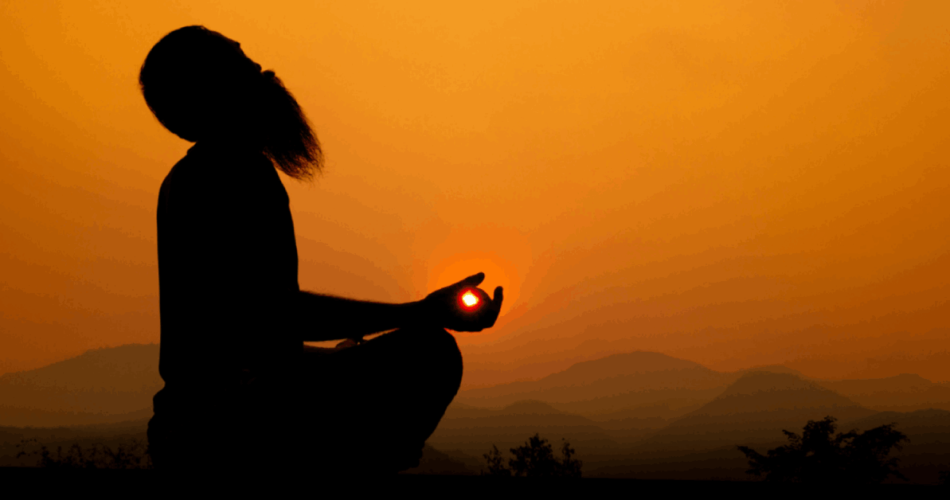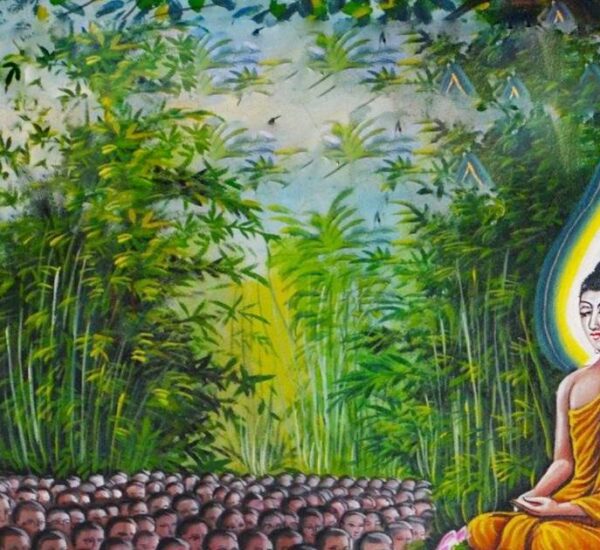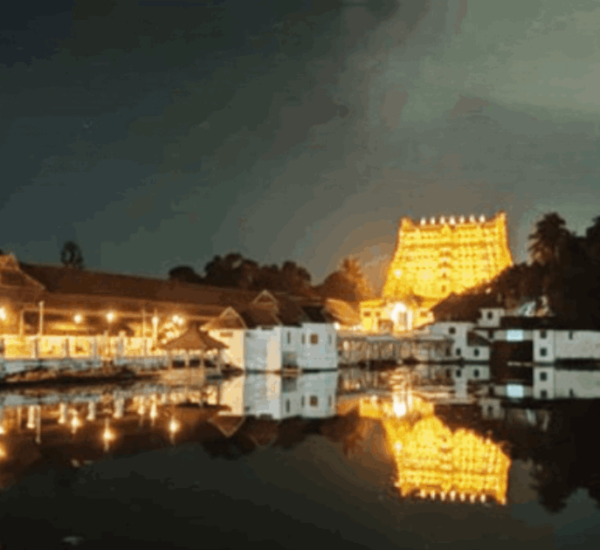Guru is the God, say the ancient scripts. Undeniably, the guru in the ancient tradition is seen upon as one no less than a God. “Guru” is an honorific description for a tutor, or educator, as defined and explained diversely in the scriptures and ancient literary works.
Spiritual Teachers and Gurus occupy a noticeable place in ancient tradition. Almost all the popular divinities of ancient traditions act as gurus to divulge divine information or teach specific skills. There is no other custom such as the Indian tradition where gurus are preserved with such respect.
The tradition of gurus and Rishis played a significant role in the conservation and endurance of spiritual practices without them, the custom would have been lost incessantly. Literally speaking “guru” means big, weighty, long, extended, significant, prominent. It also means difficult, tough, intense, esteemed, best, excellent, etc. Indeed, all these connotations apply to a spiritual master, a respected person, a religious teacher or spiritual leader who is known in the spiritual and divine traditions of India as guru.
Ancient Tradition
In the Vedic tradition, a guru was an apparent priest who completed purification rituals and introduced young students into the study of the Vedas. In ancient India, spiritual teachers who trained the higher knowledge of the Vedas and liberation directed utmost admiration. They came from all classes and experiences, and gave instruction in the undisclosed truths of liberation as a compulsory duty and a noble service. Some of them visited the imperial benches of kings and engaged in public discussions on religious and spiritual matters.
However, not all gurus were spiritual educators. There were educators for other professions and talents, who charged fees. They outshone in abundant subjects, arts, techniques, and professions. Their repute and status depended upon their acquaintance as well their asset and integrity. They taught medicine, metallurgy, weapon making, martial arts, calming of wild elephants, uninhabited animals and venomous snakes, spying, making numerous types of poisons and lethal potions, mesmerism, casting hexes, witchcraft, fine arts, gaming, architecture, sculpting, hunting, and so on. Most gurus were men, but some were womenfolk also.
Importance Of Guru In Ancient Tradition
The significance of a guru is inscribed in the ancient texts of Hinduism. The Svetasvatara Upanishad highlights the status of reverence for a guru stating that the teachings will illumine those great souls who have respect for God as well as for a guru. In the Taittiriya Upanishad students are advised to treat their teacher a god himself. The Guru Gita from the Skanda Purana associates a guru to Shiva himself.
The spiritual guru must be knowledgeable, self-fulfilling, liberating (jivanmukta), chastity, virtuous, simple, true, transcendent, free of desires and delusions, and dedicated and dedicated to God. You must be wise, focused on God, selfless, selfless, humble, indifferent, but firmly exercise discipline through personal example. A true guru practices renunciation in words and deeds, and remains unchanged in all dualistic lives. Avoid reputation, reputation, wealth, property, propaganda, worldly pleasures, luxury goods and public attention.
A master who is truly liberated will be attracted to teach and lead out of compassion or service to God rather than enriching his own treasury. Most importantly, they will not promote or attract attention to themselves, and they will not charge you to attract viewers. The true guru, the liberated guru, has no selfish interests, no self-interest, no self, and no reputation. Only that guru should be considered as a human god, he has no ego, and his identity is completely integrated with Brahman.
India has a long tradition of gurus and teachers, whose history can be 5,000 years or more. In a few cases, parents and grandparents act as teachers for their children and family members, and impart knowledge of the Vedas or the id to them. Usually, the husband acts as the guru of the wife and teaches them the secrets of liberation. Some of the most prominent teachers of ancient India were Vyasa, Vashista, Bharadwaja, Parasara, Vishwamitra, Ashtavakra, Uddalaka Aruni, Yajnavalkya, Satyakama Jabala, Angirasa, etc.
Difference between Rishis & Gurus
Indian culture and nationalism have been developed and nurtured by the ancient Indian rishis for thousands of years, who wrote Vedic literature on the banks of the holy rivers of Saptasindhu and Saraswati, which is the foundation of Indian civilization. The term “rishi” or “rsi” originally meant the composer and singer of Vedic hymns. However, the immortal is also a “saint,” and the gods revealed to him the Vedas, the knowledge of the eternal truth about the Creator, his creation, and the method of preserving it.
The three main categories of Rishi are Brahmarishi, born from Brahma’s thoughts. Devarishi and Rajarishi may become kings of Rishis through their knowledge and penance, such as Janaka, Ritaparna, etc. Shrutarishi is the author of classics like Sushruta. The Kandaris came from Kalmakanda, just like Jamini. Sapta rishis are two Sanskrit words meaning “seven saints”.
The Modern Guru
It is also true that in today’s world, teachers in the academia do not enjoy as much respect or maintain the same ethical standards, while the spiritual teachers who propagate Hinduism or Hindu spirituality have to deal with a lot of public scrutiny and negative publicity. Using the principles of Neuroscience, Dr. Sujata Singhi has specially designed a training program for teachers or Gurus of modern India that connects then to the state of the teacher within themselves and puts them at their optimum level.
The course will help the teachers in both self-management and the management of their students and very gracefully and elegantly resolve all conflicts and limitations which will lead their students becoming receptive to their teachings and lessons the way they want them for their greater benefit based on the Universal Value System of Inner Congruence. Over generations, the institution of the Indian guru has evolved as a means of passing along the various basic tenets of Indian culture and transmitting spiritual and fundamental knowledge—not only in India but to the world at large stance.
About the author:

Dr. Sujata Singhi is an Author, TEDx Speaker, Certified Life and Business Coach, Sound and Spiritual Scientist, Multi Record Holder honoured in various countries. She has transformed more than 5,00,000 lives globally in the past 25+ years on a mission to spread Joyous Living with the Power of Sound and spiritual sciences for Mental and Emotional Wellness-Peace and Prosperity.
She comes with a rich experience of 25+ years of experience, trained in 30+ healing modalities like Reiki, Pranik, Access bars, Shamanism, Mahavastu to name a few.
Recipient of various national and international awards in the capacity of an Author, Thought Leader, Transformation Influencer and Social Activist. Concept of her book, “Power of Sound” was titled “Boon to Mankind” by Hon. President of India, Shri. Pranab Mukherjee in May 2017 during his tenure.
Been conferred with 5 Doctorates in the fields of Sound and Spiritual Sciences, Happiness and Wellbeing, Life Skill Education with Specialization in Sound and NLP, Humanities, Founder MERT (Music and Emotion Release Therapies) and conferred doctorate in the same.
Conferred with a D.Litt. in Musical Arts accredited by Cambridge Distance Education (UK)
Founder of Divine Soul Sound- Institute of Sound and Spiritual Sciences
International Speaker on various forums under the United Nations with regards to Health and wellness, environment, gender equality and World Peace.
As a researchist, she has been appointed as the Hon. Board Member at the IJBST an MIL of UNESCO and EDIXIO board, India and USA for Science of Wellness and Happiness
She is a Paul Harris Fellow Rotarian and a philanthropist who works towards uplifting mankind through wellness and education
She conducts training and workshops on Sound and Spiritual Sciences, Soul Awakening retreats across various countries and has had participants from over 27+ countries to date.
She is also an expert with regards to Corporate Trainings in the fields of wellness and self-leadership.
Her books are available on:
Amazon.in: https://amzn.to/2YQIIhf
Amazon.com: https://amzn.to/3vPLIH1
Visit : https://www.sujatasinghi.com/
Follow : https://www.instagram.com/dssbydrsujatasinghi/
Linkedin : https://www.linkedin.com/in/sujatasinghi/
Twitter : https://twitter.com/sujatasinghi
Youtube : https://www.youtube.com/channel/UCZRlF2zQ-fc8kgDIVlUeBhg
Contact us @+91 9820649229
Link of the Tedx Talk:



